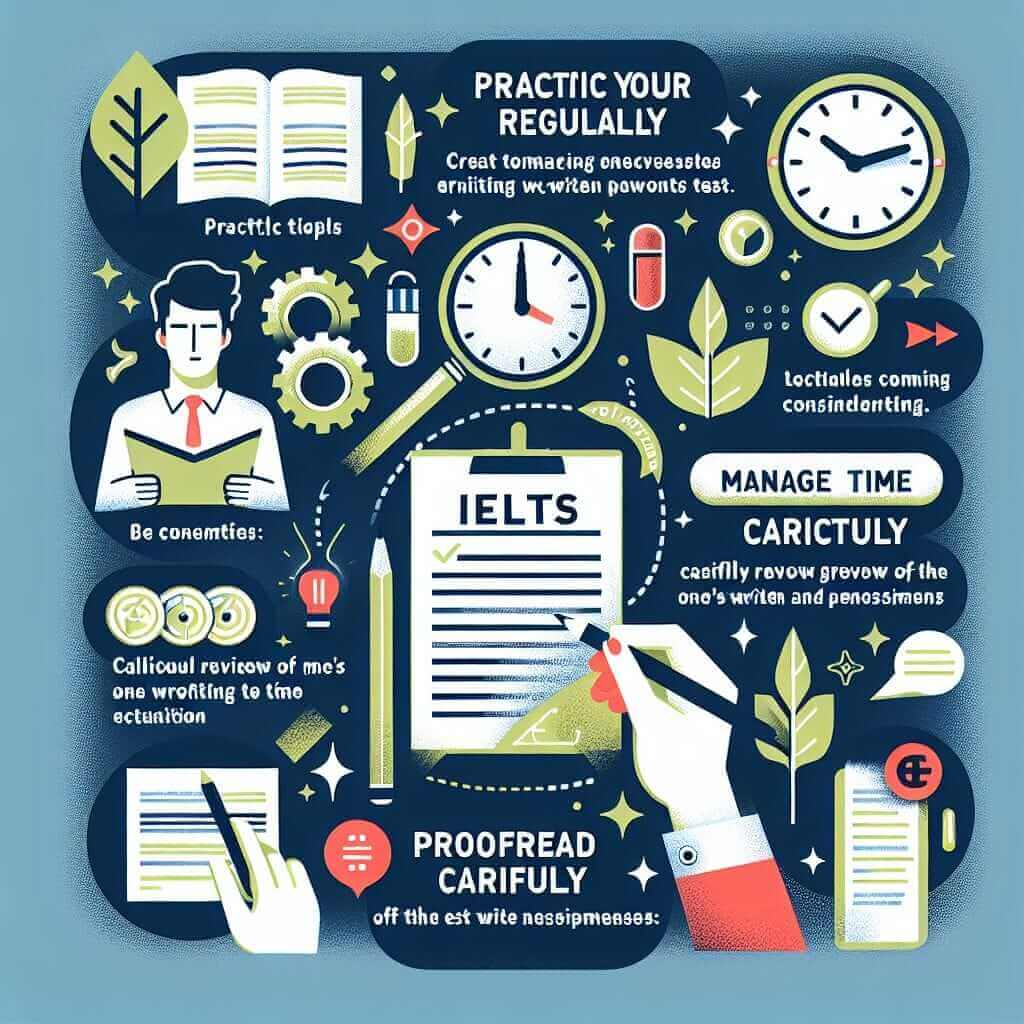Achieving a high band score in the IELTS Writing test requires a combination of strong language skills, effective writing techniques, and a deep understanding of the test format. Whether you’re aiming for a band 7, 8, or even 9, this comprehensive guide will equip you with the knowledge and strategies to excel.
Understanding the IELTS Writing Test
The IELTS Writing test assesses your ability to communicate effectively in written English. It consists of two tasks, each requiring a different style of writing:
Task 1 (Academic): You’ll be presented with a visual representation of data (e.g., a graph, chart, diagram) and asked to summarize, describe, or explain the information in your own words (150 words minimum).
Task 2 (General Training & Academic): You’ll be given an essay prompt and asked to provide your opinion, discuss a point of view, or analyze a problem (250 words minimum).
Key Elements of High-Scoring Writing
To achieve a high band score, your writing should demonstrate:
1. Task Achievement (or Task Response)
- Fully address all parts of the task: Carefully analyze the instructions and ensure you understand exactly what is being asked.
- Present a clear and relevant position: In Task 2, clearly state your main ideas and support them throughout your essay.
- Develop your ideas logically: Present your arguments or points in a structured manner, using cohesive devices to link your ideas.
2. Coherence and Cohesion
- Organize your writing clearly: Divide your essay into well-structured paragraphs, each with a clear central topic.
- Use cohesive devices effectively: Connect your ideas smoothly using linking words and phrases (e.g., however, furthermore, in contrast).
- Maintain a logical flow of ideas: Ensure that your writing progresses naturally from one point to the next.
3. Lexical Resource (Vocabulary)
- Use a wide range of vocabulary: Demonstrate your knowledge of sophisticated vocabulary, but ensure it is used accurately and appropriately.
- Avoid repetition: Vary your language by using synonyms and paraphrasing.
- Use precise and accurate vocabulary: Choose words that convey your intended meaning clearly and effectively.
4. Grammatical Range and Accuracy
- Use a variety of sentence structures: Demonstrate your command of complex and compound sentences.
- Ensure grammatical accuracy: Pay close attention to subject-verb agreement, tense consistency, and correct article usage.
- Punctuate your writing correctly: Use commas, semicolons, and other punctuation marks accurately to enhance clarity.

Tips for Success
Here are some additional tips to help you achieve a high band score in IELTS Writing:
- Practice regularly: Write essays and reports on a variety of topics to improve your writing fluency and accuracy.
- Get feedback from experienced teachers: Seek feedback on your writing to identify areas for improvement.
- Analyze model essays: Study high-scoring essays to understand the key features that contribute to success.
- Manage your time effectively: Allocate your time wisely to allow for planning, writing, and revising.
- Proofread carefully: Before submitting your writing, carefully proofread for any errors in grammar, spelling, or punctuation.
Conclusion
Mastering the IELTS Writing test requires dedication, practice, and a strategic approach. By focusing on the key elements outlined in this guide, you can enhance your writing skills and increase your chances of achieving your desired band score. Remember to practice regularly, seek feedback, and stay persistent in your efforts, and you’ll be well on your way to IELTS success!